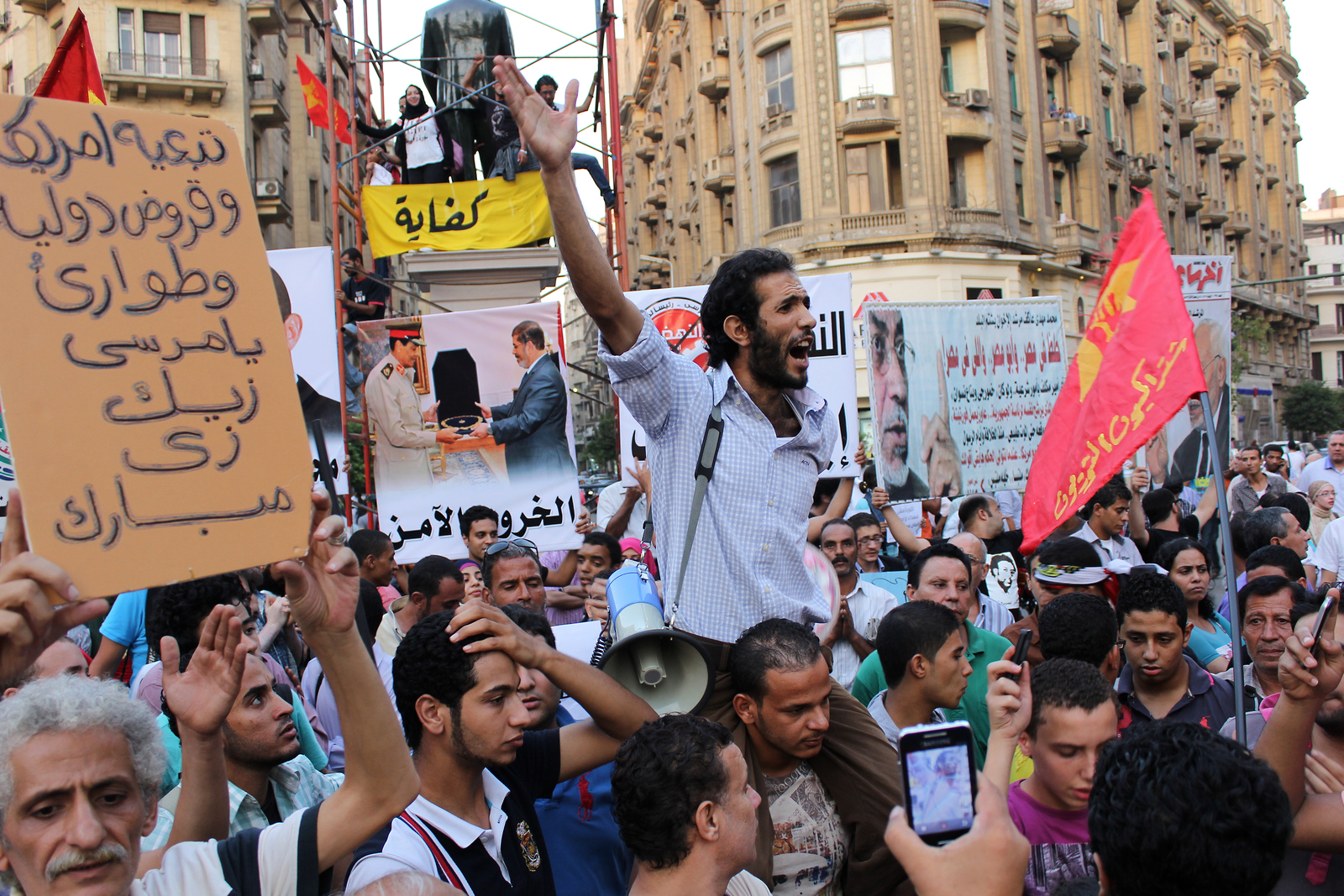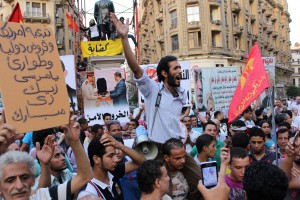How did we get from Tahrir to here?


The Egyptian chapter of the Arab Spring was the most defined, popular and peaceful movement to take place across the region. It was also (at the time) the most effective, leading to the overthrow of decades-old authoritarian leader Hosni Mubarak.
Charges were laid against Mubarak, promises for elections were made, and protestors appeared united in their fight for the same vague but promising future centered on the tenets of democracy and freedom. However, anyone with basic knowledge of the Middle East knew it could not be this simple.
As a general rule in the region, nothing is ever simple or one-dimensional. When there is power up for grabs, regional powers will exert their influence both overtly and covertly to make sure any available power ends up in the hands of an individual or group with shared interests.
So, despite the best attempts of the media in the East and West, a better future for Egyptians was far from a sure thing.
There was never going to be a smooth transition to a democratically elected government. The people were looking to fundamentally alter a state and its institutions that had essentially been operating the same way for a half-century. It was an impossible mission from the beginning, and if Egyptians and the international community had realized this early enough, the situation today could look considerably less bleak.
The Arab Spring, as exemplified so vividly in Egypt, was a media creation — a flawed, one-size-fits-all concept, and most importantly, a misleading fallacy.
The Arab Spring succeeded in producing elections which were impressively free and fair. Mohammad Morsi, a member of the Muslim Brotherhood, was elected on June 30, 2012 as the country’s first democratically elected leader.
Many were opposed to his victory due to the Brotherhood’s controversial history, religious rhetoric, and political inexperience. However, at first even his opponents seem to respect the process.
Barely a year into his first term, respect for the process went out the window as an impatient Egyptian people grew increasingly unsettled with a failing economy, among other shortcomings. The people took to the streets in masses and the military answered calls for Morsi’s job in the form of a coup.
When democratically elected Mohammad Morsi was overthrown by the military, the Arab Spring, democratic process, and free and fair elections were all overthrown along with him.
Egypt is now a military dictatorship being run by the same armed forces commanded by Mubarak for decades. Public support for the coup does not make it any more legitimate and the aftermath of Morsi’s forced removal has propelled the country to the brink of civil war.
However, a coup never leads to a peaceful transition or consolidation of power. Morsi was not a strong leader, but to be fair, nobody could have transformed Egypt in one year and reverse all of the damage done by the Mubarak regime. The public was destined to underwhelmed.
Morsi wasn’t an effective president and more often than not, his policies revealed the Brotherhood as incompetent.
The party had no experience in government or governance and Morsi should have been removed for poor performance, not for religious reasons.
All parties involved knew that overthrowing Morsi would cause an uproar. When the military coup became about the Brotherhood and their brand of Islam and less about political failures, the military opened the door to a whole new type of backlash.
The most staggering part of this whole situation is how ignorant the military was to the inevitable consequences of the coup. Other than being wholly undemocratic, the coup sent a dangerous message to the Brotherhood and comparably similar Islamists across the region: no matter to what degree you appease opponents, appeal to the masses, or tone down the rhetoric, there is no place in politics for you.
The military made clear by virtue of the coup that no matter how many concessions Islamists make, there is no place for them in Egyptian politics, even if democratically elected. There is no longer an incentive for extremists to try to modernize or become more mainstream. The Brotherhood played by the rules and won. By stealing their victory away from them and their supporters, there is less reason to co-operate and more incentive to compete. Certainly, Islamists in other countries have taken note.
Another inexplicable aspect of the coup and its aftermath is that the military has somehow not learned that cracking down with violence and oppression only fuels extremism, international sympathy, legitimization and recruitment.
The military has taken international attention away from Morsi’s violent supporters and put the focus on its own killing of innocent, peaceful protestors. Morsi is not a revolutionary nor is he even a successful leader. But by staging a coup to overthrow him, the military and the state delegitimized their cause and those who support them. Concurrently, they turned Morsi into the revolutionary figure he never was.
By prosecuting the entire Brotherhood movement and their supporters, who are justifiably enraged by the military, the military kick-started a cycle of violence that has no end in sight and will produce no victor.
The military was justified in supporting the will of the people. Military leaders could have challenged Morsi to step down and appealed to the international community to help force Morsi into resignation.
Human Rights Watch Director Kenneth Roth recently tweeted, “Algeria shows: treating elected Islamists as ‘terrorists’ in name [sic] of ‘democracy’ generates terrorists, not democracy.”
The military and the people who still support it need to realize this sooner rather than later if Egypt is to restore any semblance of a functioning society. Allow the protestors to protest and let the media and international community focus on the real criminals who are torturing political opponents, burning churches, and attacking government buildings.
There is still hope that the hard work of the Egyptian people in Tahrir Square a couple years back will lead to a better future for all Egyptians.
With Mubarak released from prison, a military dictatorship in place, and Egyptians split on how to proceed towards democracy, the future looks bleak. The silver lining is that a revolution did take place, despite its current stagnation. That means people do know what they want. They just disagree on how to get there.

